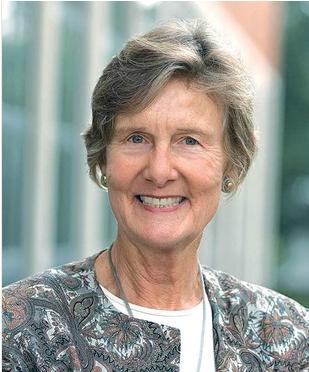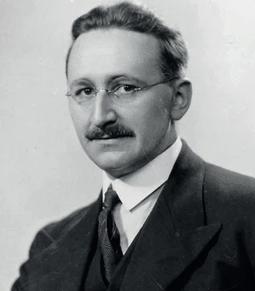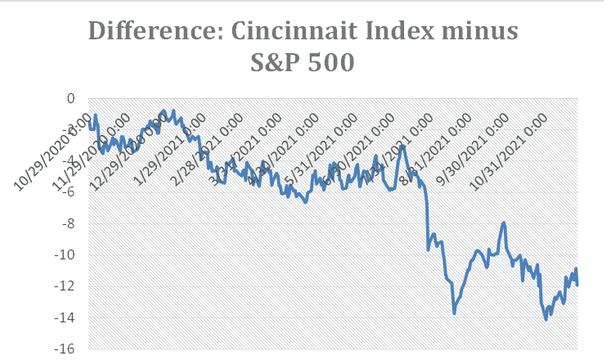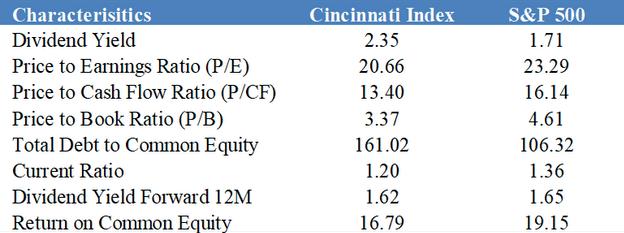
10 minute read
Book Excerpts
ACADEMIA’S OTHER MISSION: MAKING STUDENTS INTERESTING
In an interview with CBS, Dr. Nannerl Keohane, the former President of Duke University, was asked what she thought was the real mission of her university. After some reflection, Dr. Keohane responded that she saw the mission of Duke as one of making each student a more interesting person. At first, her answer may seem a bit simple (more elegant and practical mission statements can certainly be found on Duke’s Website). Academia does educate and train society’s future doctors, lawyers, scientists, teachers, and engineers, but through instilling knowledge, developing math or logic skills, enlightening a student’s feelings and sensitivities, and most importantly developing depth to their understanding of subjects, academia also makes students more interesting. The writer Herbert Stein commented that today’s students seem “to know a lot, but understand very little.” Today, with a media-influenced society, developing depth in students’ understanding of a subject has become more of a challenge in the halls of academia. A relevant question is: How does academia develop depth in our students’ knowledge and understanding of subjects?
Advertisement
First, intellectual depth is often the product of mastering seminal works. Whether it is Keynesian economic theory, a work of Shakespeare, Einstein‘s theory of relativity, or the philosophy of Descartes, a student who studies such intellectual works inevitably learns how great minds work, the subtleties inherent in great ideas, the power of logic, and the beauty of thoughts and ideas. In many finance classes, for example, students are required to study the Nobel Prize-winning works of Modigliani, Miller, Markowitz, Sharpe, Scholes, and Fama. Mastering these influential works undoubtedly brings depth and quality to finance majors’ understanding of the subject. Intellectual depth is also fostered when students learn to express concepts in different ways. In economics, for example, students are often required to explain a theory, strategy, or idea mathematically, graphically, and intuitively. By doing this, a student’s understanding and retention of theories and ideas is enhanced. A professor teaching an executive MBA class once related a story about how a lawyer in his class acknowledged the value she found from his insistence that she focus more on expressing the concepts mathematically rather than verbally. On the other hand, an engineer expressed his thanks to the professor for urging him to focus more on explaining concepts verbally rather than mathematically. Both the lawyer and the engineer gained depth to their understanding of business by learning how to express business concepts in more than one way.
Finally, intellectual depth is achieved when students are able to relate their subjects to other areas. In writing about the differences between science and the humanities, the novelist Tom Robbins wrote that “the scientists needs the humanists to keep the scientists human, and the humanists needs the scientist to keep the humanists honest.” Economic students, for example, gain depth when they see not only an abstract concept, a statistic, or a dollar sign, but also when they are able to connect the idea to what is real. The U.S.’s gross domestic product grew from $8 trillion in 1984 to over $25 trillion today and the Dow Jones Average increased exponentially from 700 in 1982 to over 35,000. Behind the statistics, though, is an economy that has evolved: Paperwork that once filled an entire office could now be put in a small computer chip and instead of a trip to the library, data and information can be accessed in seconds via satellites and the internet.
In the 1960s, the late historian Richard Hofstadter wrote about anti-intellectualism in America. Evaluating various historical periods in terms of their literature, court decisions, religious movements, and other social indicators, Hofstadter defined different historical periods as being either intellectual or anti-intellectual. Today, when we look at how vulnerable our society is to media and political spin, we might be inclined to conclude that we are living in a period that Hofstadter would define as anti-intellectual. If so, in a very fundamental way, the role of the academy may well be one of countering the spin of society by promoting intellectualism. In addition to turning out the next generation of professionals, academia, by enlightening students’ intellectual curiosity, exposing them to great thinkers, and helping them master complex theories and concepts, promotes intellectualism. In the end, the final product is a deeper, more intellectual, and maybe even, a more interesting person.
BOOK EXCERPTS
“This is the fundamental fact on which the whole philosophy of individualism is based. It does not assume, as is often asserted, that man is egoistic or selfish or ought to be. It merely starts from the indisputable fact that the limits of our powers of imagination make it impossible to include in our scale of values more than a sector of the needs of the whole society, and that, since, strictly speaking, scales of value can exist only in individual minds, nothing but partial scales of values exist—scales which are inevitably different and often inconsistent with each other. From this the individualist concludes that the individuals should be allowed, within defined limits, to follow their own values and preferences rather than somebody else’s; that within these spheres the individual’s system of ends should be supreme and not subject to[…]”

F.A. Hayek, The Road to Serfdom, p. 377
“Most people are still unwilling to face the most alarming lesson of modern history: that the greatest crimes of our time have been committed by governments that had the enthusiastic support of millions of people who were guided by moral
impulses.” F.A. Hayek, Mirage of Social Justice
Condoleezza Rice, Democracy, p. 19
“If democracy is broadly understood to mean the right to speak your mind, to be free from the arbitrary power of the state, and to insist that those who would govern you must ask for your consent, then democracy—the only form of government that guarantees these freedoms—has never been more widely accepted as right. Yet, while the voices supporting the idea of democracy have become louder, there is more skepticism today about the actual practice and feasibility of the enterprise. The pessimism is understandable …. If there is cause for optimism, it is in recognizing that people still want to govern themselves. Democracy activists in Hong Kong and mainland China risk persecution and arrest if they press their cause. Elections still attract long lines of first-time voters, even among the poorest and least-educated populations in Africa—and sometimes even under threat from terrorists…. No matter their station in life, people are drawn to the idea that they should determine their own fate. Ironically, while those of us who live in liberty express skepticism about democracy’s promise, people who do not yet enjoy its benefits seem determined to win it. Paul Johnson, Modern Times

“It was Jean-Jacques Rousseau who had first announced that human beings could be transformed for the better by the political process, and that the agency of change, the creator of what he termed the ‘new man’, would be the state, and the self-appointed benefactors who controlled it for the good of all. In the twentieth century his theory was finally put to the test, on a colossal scale, and tested to destruction…. By the year 1900 politics was already replacing religion as the chief form of zealotry. To archetypes of the new class, such as Lenin, Hitler and Mao Tse-tung, politics–by which they meant the engineering of society for lofty purposes–was the one legitimate form of moral activity, the only sure means of improving humanity .... At the democratic end of the spectrum, the political zealot offered New Deals, Great Societies and welfare states; at the totalitarian end, cultural revolutions; always and everywhere, Plans. These zealots marched across the decades and hemispheres: mountebanks, charismatics, exaltés, secular saints, mass murderers, all united by their belief that politics was the cure for human ills: Sun Yat-sen and Ataturk, Stalin and Mussolini, Khrushchev, Ho Chi Minh, Pol Pot, Castro, Nehru, U Nu and Sukarno, Perón and Allende, Nkrumah and Nyerere, Nasser, Shah Pahlevi, Gadafy and Saddam Hussein, Honecker and Ceausescu. By the 1990s, this new ruling class had lost its confidence and was rapidly losing ground, and power, in many parts of the world..... But it was not yet clear whether the underlying evils which had made possible its catastrophic failures and tragedies–the rise of moral relativism, the decline of personal responsibility, the repudiation of Judeo-Christian values, not least the arrogant belief that men and women could solve all the mysteries of the universe by their own unaided intellects–were in the process of being eradicated. On that would depend the chances of the twenty-first century becoming, by contrast, an age of hope for mankind.”
George Orwell, 1984, p. 360
"This process of continuous alteration was applied not only to newspapers, but to books, periodicals, pamphlets, posters, leaflets, films, sound tracks, cartoons, photographs—to every kind of literature or documentation which might conceivably hold any political or ideological significance. Day by day and almost minute by minute the past was brought up to date. In this way every prediction made by the Party could be shown by documentary evidence to have been correct; nor was any item of news, or any expression of opinion, which conflicted with the needs of the moment, ever allowed to remain on record. All history was a palimpsest, scraped clean and reinscribed exactly as often as was necessary. In no case would it have been possible, once the deed was done, to prove that any falsification had taken place." Only in his own consciousness, which in any case must soon be annihilated. And if all others accepted the lie which the Party imposed—if all records told the same tale—then the lie passed into history and became truth. “Who controls the past,” ran the Party slogan, “controls the future: who controls the present controls the past.” And yet the past, though of its nature alterable, never had been altered. Whatever was true now was true from everlasting to everlasting. It was quite simple. All that was needed was an unending series of victories over your own memory. “Reality control,” they called it; in Newspeak, “doublethink.”
Tara Westover, Educated, p. 197
“Not knowing for certain, but refusing to give way to those who claim certainty, was a privilege I had never allowed myself. My life was narrated for me by others. Their voices were forceful, emphatic, absolute. It had never occurred to me that my voice might be as strong as theirs.” Jordan Peterson, 12 Rules for Life—An Antidote to Chaos, p. 360
“Failure to make the proper sacrifices, failure to reveal yourself, failure to live and tell the truth—all that weakens you. In that weakened state, you will be unable to thrive in the world, and you will be of no benefit to yourself or to others. You will fail and suffer, stupidly. That will corrupt your soul. How could it be otherwise? Life is hard enough when it is going well. But when it’s going badly? And I have learned through painful experience that nothing is going so badly that it can’t be made worse. This is why Hell is a bottomless pit. This is why Hell is associated with that aforementioned sin. In the most awful of cases, the terrible suffering of unfortunate souls becomes attributable, by their own judgment, to mistakes they made knowingly in the past: acts of betrayal, deception, cruelty, carelessness, cowardice and, most commonly of all, willful blindness. To suffer terribly and to know yourself as the cause: that is Hell. And once in Hell it is very easy to curse Being itself. And no wonder. But it’s not justifiable.”
Mollie Hemingway, Rigged, 2021, p. 7
“In 2016, absentee and mail-in ballots accounted for roughly 33 million of the 140 million ballots counted. In 2020, more than 100 million of the 159 million ballots counted were cast prior to Election Day, including by early voting. The change was enough for former attorney general William Barr to sound the alarm about how widespread early, absentee, and mail-in voting was negatively affecting the voting public. Extending voting well beyond voting day “is like telling a jury in a 2-month trial that they can vote any time they want during the trial,” Barr said after the election in an interview at his home. “You can’t say it’s really a national consensus because people are all operating on a different set of facts.”

RETURN PERFORMANCE OF BLOOMBERG CINCINNATI STOCK INDEX
Bloomberg's Cincinnati Index is a weighted Index Measuring the Equity Performance of the Equity of the Cincinnati Area’s Companies














